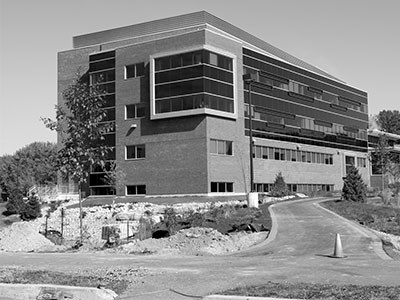Now that it’s been approved for funding, the Rural Agri-Innovation Network (RAIN) in Sault Ste. Marie can get its three-year pilot project underway, the focus of which is finding a pan-northern approach to agricultural research, innovation and agri-based economic development.
“We all share some common goals and needs, but each district is a little different in terms of its agricultural focus and current activities,” said Errol Caldwell, RAIN’s research co-chair.
“They really need to determine for themselves what’s best going to work for them, but we’re really keen on working with everyone in a pan-northern sense to move the yardsticks forward for Northern Ontario.”
An initiative of the Sault Ste. Marie Innovation Centre (SSMIC) and the Northern Ontario Research, Development, Ideas and Knowledge (NORDIK) Institute, RAIN’s mandate is to foster improved producer success and business growth in the agriculture industry.
In September, the organization was approved for more than $700,000 for the next three years. It’s enabled RAIN to hire David Thompson as its coordinator, and it’s in the process of hiring a research technician to help oversee and undertake crop trials in the area, as well as a market development specialist.
“It’s great to be able to grow these crops and produce products and value-added commodities,” Caldwell said, “but you need a market to sell them to, and that’s what that person’s going to be focused on largely, increasing access to local markets.”
Over the three-year trial period, funding will go towards researching canola and canola rotational crops, as well as the viability of switchgrass, reed canarygrass and miscanthus for use as cash crops for biomass.
RAIN is establishing a crop trial facility at the community pasture in Thessalon, located just over an hour east from Sault Ste. Marie. Caldwell said the organization has access to five acres of drainage-tiled land to do micro-plot trials and will continue to look for growers to participate as the need arises.
Tile drainage — which helps remove excess moisture from the soil, enhancing crop production — is one of the major issues facing Northern Ontario growers. It can cost up to $1,000 per acre for installation, which in some cases, is more than the value of the land, Caldwell said.
Other problems plague the Northern agriculture industry. Farmers need more storage facilities for crops, and abattoirs need help with the processing and pre-processing of agricultural crops and the production of value-added products.
But they’re areas that don’t merit a lot of attention from funders.
“It’s existing technology for the most part and it’s hard to get innovation funding for such activities,” Caldwell said. “So we need to look at perhaps some unique and dedicated programs that will give some financial incentives for some of these things to occur.”
While there is an agricultural component to the Growth Plan for Northern Ontario announced in 2011, no concrete programs have developed out of it yet, Caldwell said. And he’s concerned about cutbacks to agriculture in Northern Ontario.
The Kapuskasing Experimental Station is set to close, which will leave the North without federal agricultural representation, and there are concerns that the New Liskeard research station could be on the chopping block next.
But RAIN isn’t waiting around to see what happens next, instead taking a proactive approach.
RAIN is commissioning an agricultural engineering study on tile drainage, which will identify growers’ needs and how they can get the “biggest bang for their buck,” Caldwell said. Pending the results, RAIN will approach funders to see about incentives for interested growers. If it works, Caldwell sees its potential as a model for other districts.
Collaboration has already begun with Eat Local Sudbury, a co-operative that sells local farm products, and biology researchers at Algoma University have expressed an interest in extending their work into agriculture as well. Access to the crop trial facility will be made available to them, Caldwell said.
RAIN is also aiming to increase the awareness surrounding the needs of growers with events like its recent two-day Agriculture and Food Symposium, featuring Steve Kenyon, an Alberta beef farmer who spoke about sustainable agricultural practices.
Caldwell said RAIN will host a symposium every February, as well as at least 10 workshops over the next three years on topics that are of interest to area growers.




